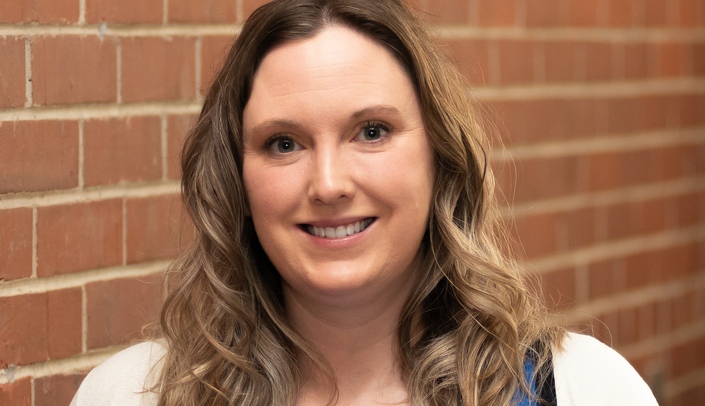Health care workers face many challenges and stressors due to high patient volumes, long work hours and workplace demands. Challenges were amplified by the COVID-19 pandemic.
The University of Nebraska Medical Center College of Nursing has received a three-year, $2.2 million grant to work with partners across Nebraska to develop and deploy resources that will promote resiliency and mental health in nursing students, registered nurses and advanced practice registered nurses, as well as their employers, working in rural and medically underserved areas.
The intent is to foster healthy workplace environments that promote mental health and resiliency by helping to manage stressful situations, hardships, avoid burnout, suicide and substance use disorders. The grant will embed wellness interventions into UNMC nursing curriculum, create and evaluate train-the-trainer models and provide free continuing education to practicing Nebraska nurses and their employers across Nebraska.
UNMC College of Nursing Assistant Professor Alyson Hanish, PhD, said there is a need for a broader focus on wellness, covering the whole nursing career continuum, from trainees to practicing nurses, addressing burnout and mental health conditions. The team will adapt and deliver evidence-based wellness interventions and provide subsequent resources into rural and medically underserved areas in nursing, including our Critical Access Hospitals across the state.
The UNMC grant funded through the U.S. Department of Health and Human Services’ Health Resources and Services. It is part of an estimated $103 million in American Rescue Plan funding over a three-year period to reduce burnout and promote mental health among the health care workforce.
Dr. Hanish will lead a multidisciplinary team in the College of Medicine and College of Public Health, and facilitate partnerships with the Nebraska Board of Nursing, the Nebraska Center for Nursing and the Nebraska Hospital Association.
Dr. Hanish is a pediatric nurse and sleep researcher, but when she saw family members and colleagues struggling throughout the pandemic and the high rates of burnout, she saw the grant as a way to help.
“We’re in a complicated environment right now. The pandemic has exacerbated the nursing shortage,” Dr. Hanish said. “We know burnout is increasing and about 25-30 % of new nurses quit in their first year. When I saw a call for grant proposals, I had a gut reaction that I needed to do something. It’s an ongoing issue and it’s going to take a large investment at a systems level.
“The health of nurses has to be a priority. We will implement evidence-based wellness interventions to keep our workforce healthy so they can provide the best health care to their patients. By providing resources to address escalated burnout and mental health conditions, we aim to improve the recruitment and retention crisis of nurses.” she said.
SIDEBAR
Rebecca Wysoske, MD, along with others from the Department of Psychiatry, has developed a stress management program, WHOLE (Wellness – How One Lives Effectively). As part of the grant, the program will be tailored to meet specific needs of nursing students and workforce. The program uses Acceptance and Commitment Therapy and the Substance Abuse and Mental Health Services Administration Eight Dimensions of Wellness as the framework.
Dr. Wysoske said the program, which is taught in one- to two-hour increments, usually once a week over eight sessions, will include ways to manage acute stress, as well as self-care, meditation and other proven strategies to reduce chronic stress.
“The goal is to keep stress under control the best we can, and to recognize when we may need to reach out for help. When you’re headed for burnout, everything looks negative. It’s not useful to spend time or energy on the past or things we don’t have control over,” said Dr. Wysoske, assistant professor in the UNMC Department of Psychiatry. “Energy spent on those things means there’s no energy left for working on the things you can change and things that may make your life easier to manage or more enjoyable. We emphasize identifying positive things to be grateful for.
“Burnout has a lot to do with systems — things we don’t have control over. We can’t individually change staff or equipment shortages, but we can recognize what is in our control and focus our energy there so we can make even a small difference that may have a big effect.”
